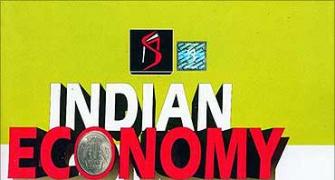Oil still lubricates the global economy and could make it seize up. Prices above $110 a barrel raise the spectre of previous shocks. Judged by fundamental supply and demand, there is no reason for prices to remain so high. But, a sustained spike would be a big problem for the global economy.
Judged by fundamental supply and demand, there is no reason for prices to remain so high. But, a sustained spike would be a big problem for the global economy.
Quantifying that problem is an inexact science. In 2004, the International Energy Agency calculated that an increase of $10 a barrel would reduce GDP growth in developed countries by 0.4 per cent a year over the following two years.
It would also add 0.5 per cent to annual inflation. The impact was more severe in the developing world: in Asia, growth would be 0.8 per cent lower and inflation 1.4 per cent higher.
But the IEA's estimates were made when the oil price was just $25 a barrel. While a $10 price increase on Thursday is lower in percentage terms, the absolute level is much higher: at the current price, oil consumption accounts for more than 5 per cent of global GDP.
The world today probably uses oil more efficiently than in the past. Even so, the recent spike poses dual threats of inflation and recession.
Very high growth rates in China, India and other emerging economies mean inflation is already rising. More expensive oil will hurt consumers, but give extra impetus to inflation.
Governments and central banks will face a dilemma: to tighten now, or run increasing inflation risks by assuming the shock is temporary.
In the developed world, the great threat is to growth. In the Euro zone periphery, higher oil prices will make recovery more difficult.
But the European Central Bank will probably still respond to a further climb in inflation which, at 2.4 per cent, is already above target.
In the UK, the 15 percent annual rise in fuel prices is already the chief factor behind the four per cent inflation rate.
The danger that oil could push the UK back into recession is real. Globally the impacts will intertwine. Damage to Western consumers will harm emerging economies' exports and growth.
The threat will recede if the Gulf escapes serious unrest and oil prices retreat. But the longer prices remain high, the more global nerves will jangle.










